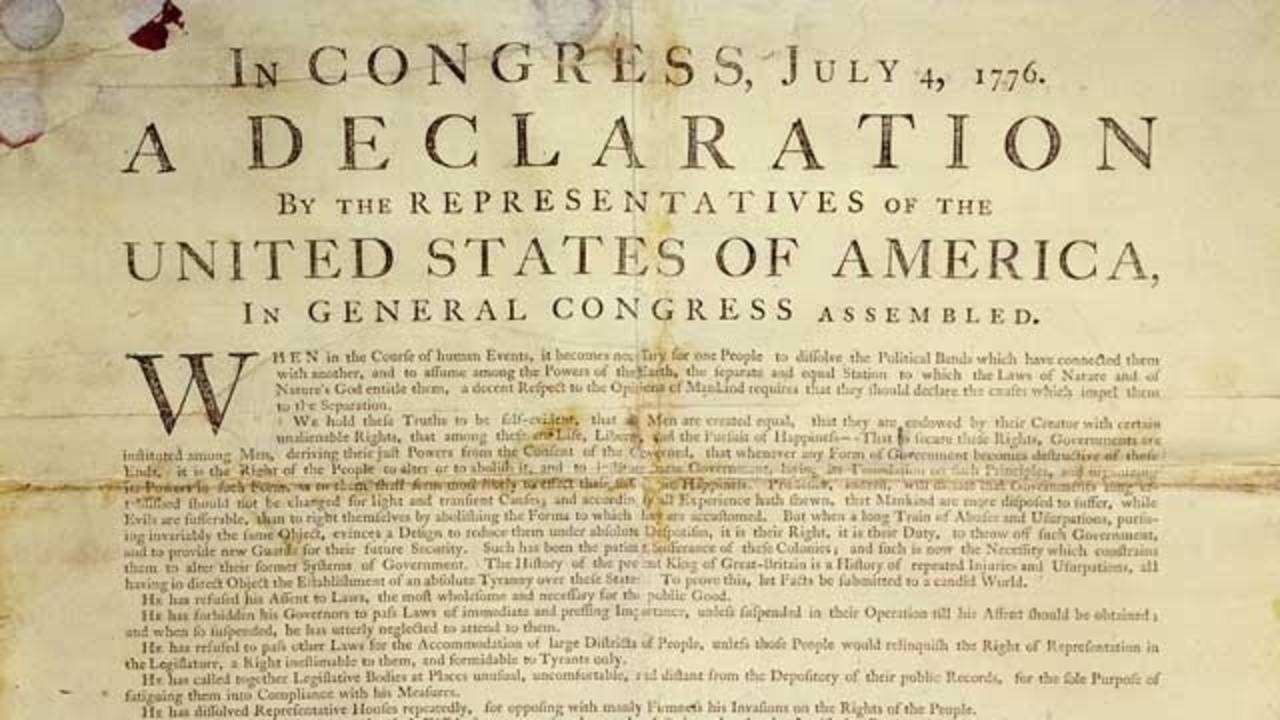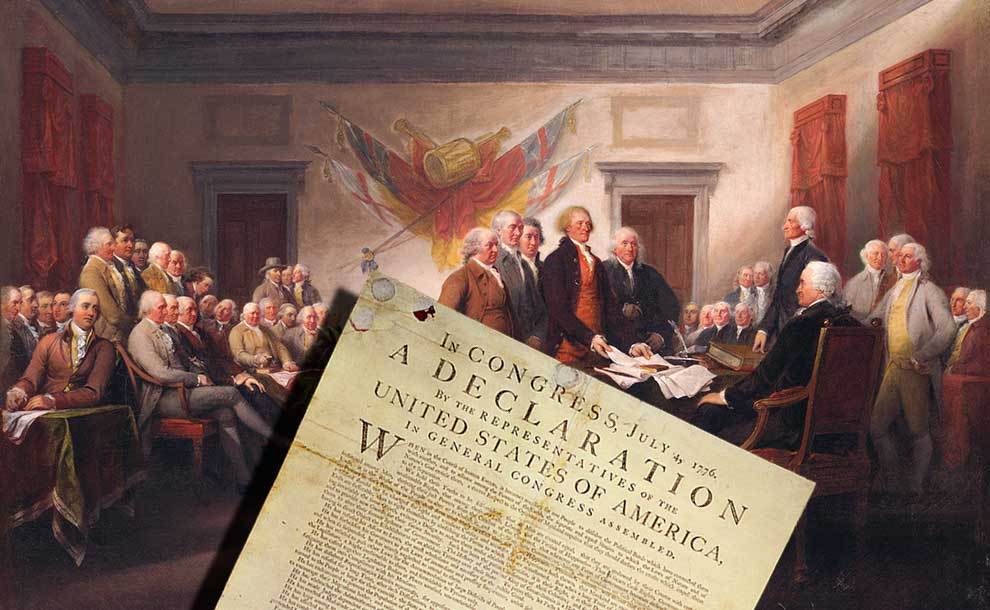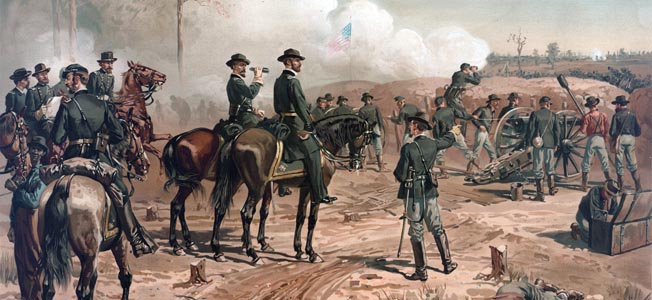Skip to comments.
Software engineer describes his experience with H1B.
X/Twitter ^
| 12/30/2024
| John Konrad
Posted on 12/30/2024 8:32:27 PM PST by SeekAndFind
My friend @JoshuaSteinman is dropping bombshells about H-1B visas, and I’ve got a story to add.
tl;dr – It’s a cultural problem.
I spent years in India, working directly for one of the country’s wealthiest individuals. He recruited me for my computer skills to lead some of the most ambitious, technically challenging projects ever attempted.
We broke world records and unlocked trillions in wealth. My boss? He now lives in a skyscraper in Mumbai.
Toward the end of the project, he told me his best engineers were leaving for Silicon Valley, lured by unbelievable salaries. So, on his recommendation, I packed up my family and moved to California.
Here’s where it gets weird: I was (at least for short periods of rime) chief of that massive project, with ultimate responsibility. But guys several rungs below me - men way less qualified for any job - were getting H-1B visas and landing incredible salaries in tech.
I got turned down for every tech job I applied for.
Looking back, here’s why:
1.I told the truth. The foreign visa applicants? Many claimed to work in different departments or roles to fit the narrative. I admitted I worked on oil & gas projects. That’s considered “dirty” and “irrelevant” in tech. http://2.My school wasn’t on “the list.” I graduated from @MaritimeCollege —what @stevenujifusa calls “the Harvard of Maritime.” Highest attrition rate in the country. 185 credits. Classes like spherical geometry. But it’s a state school in The Bronx.
Tech doesn’t care. They rely on lists of “approved” “Ivy Plus” schools, as @bhorowitz admits in The Hard Thing About Hard Things.
But there’s more to it. It’s a cultural problem.
American applicants are at a disadvantage because we’re too easy to vet.
•Work for an Indian oil company? Don’t mention it on your resume.
•Work for a Chinese communist spy agency? Just leave it out.
•Wrong degree? Ask the school to reword your transcript or reframe it as a minor.
As an American, it’s incredibly difficult to lie. HR WILL call my references and confirms every detail of my background.
But for foreign applicants? That’s a lot harder to verify, so they get a pass.
And beneath it all? “Tech culture.”
Read any book about the industry, and you’ll find a near-religious obsession with maintaining “culture.” It’s a startup mantra: hard work, positivity, willingness to take risks.
But the dirty secret? “Tech culture” also harbors disdain for: •“Dirty” industries like oil & gas. •Christian values or Republican politics. •Anything less than an Ivy League education.
This isn’t just about H-1Bs. It’s about arrogance baked into an industry that weeds out Americans for not fitting their mold.
I’m not surprised that zero of Josh’s friends from the Trump administration got hired in tech, even at the highest levels.
If you’re a foreign conservative? They’ll hire you because it doesn’t code against “tech culture.” (E.g. I have several ultra conservative very religious Hindu friends who don’t have this problem) But if you’re an American who doesn’t fit their narrative? They’ll weed you out.
It’s time to talk about the serious cultural problem in tech—and how it’s harming American workers.
Tech has serious biases. They either need to toss them out and hire the best candidates or figure out how to properly vet foreigners who don’t fit their BS culture.
P.S. I did find a way around this BS. Start a company yourself m. I did and raised over $6M for one company.
How did I do it? I dropped any mention of my religion, politics, oil drilling experience and state school education from my capital raising meetings. Worked like a charm.
As an American it’s literally easier to get million dollar checks than a middle level job at Facebook or Apple.
Watch this:
TOPICS: Business/Economy; Computers/Internet; Society
KEYWORDS: antisunylibsbelow; h1b; h1bforindia; h1bisnotforamerica; h1bobsession; h1bvisas; hiring; rinos4h1b; rinos4india; softwareengineer; technology
Navigation: use the links below to view more comments.
first previous 1-20 ... 101-120, 121-140, 141-160, 161-171 last
To: BroJoeK
No, it does just the opposite -- the Declaration acknowledges that people do not change governments for "light and transient reasons" It does not "acknowledge it", it only cautions against it.
Again, it is the difference between a requirement and a suggestion.
Look up the word "should", and then look up the word "shall." They have different meanings.
161
posted on
01/08/2025 7:16:24 AM PST
by
DiogenesLamp
("of parents owing allegiance to no other sovereignty.")
To: BroJoeK
However, if we believe that our Founding Documents are important and valid, especially as regards the legal compact that binds us together as Americans, then we have to confess that words have meanings as intended by those who wrote them, first and foremost. I'm glad you have reverence for our founding documents. I just wish you had reverence for the Mother document which gave us our Independence from England.
It says people have an absolute right to independence for whatever reasons they see fit. The conditions which you keep trying to impose are suggestions, not requirements.
162
posted on
01/08/2025 7:21:43 AM PST
by
DiogenesLamp
("of parents owing allegiance to no other sovereignty.")
To: Tell It Right
 Tell It Right
Tell It Right:
"That doesn't say, "Hey, England. We have to tell you why we're leaving, so here it is."
It's saying why our Founding Fathers couldn't just sit on their tails and do nothing." Seriously?
Why are you fantasizing nonsense?
The Declaration says what it says and means what our Founders intended it to mean, not whatever you fantasize they might have thought.
The Declaration of Independence is:
- First & foremost the instrument of independence -- the legal document which made the United States of America an independent country.
- An explanation of the basic whys and wherefores of declaring independence.
- A legal case based on: "a decent respect to the opinions of mankind" and so, "To prove this, let Facts be submitted to a candid world."

- A moral case based on: "Laws of Nature and of Nature's God"
- Those laws include such "self-evident truths" as:
- All men are created equal and endowed by their creator with certain unalienable rights.
- Those rights include life, liberty and the pursuit of happiness.
- That governments are instituted, by the consent of the governed, to secure such rights, and whenever governments become destructive of those ends, then people have a right to replace their government.
As the instrument of Independence, the Declaration was printed in many copies, then sent throughout the 13 new states and around the world, including to British officials in America, who soon sent it to the British government in London.
But the Declaration was not addressed to the British government or its king, but rather to
"the opinions of mankind" and
"a candid world".
The Declaration went to great lengths to make its legal and moral case that independence was not at pleasure or "for light and transient reasons", but rather a matter of total necessity -- a word repeated several times to insure the point is not missed.
 Final point here: the United States did not go to war against the Confederacy because of secession alone.
Final point here: the United States did not go to war against the Confederacy because of secession alone.
Rather, the US went to war -- just as any country of that time would -- when Confederates began firing artillery at Union forces in Fort Sumter, forcing them to surrender.
So, a lot nonsense from our pro-Confederate apologists just doesn't correspond to actual historical facts.
163
posted on
01/08/2025 8:03:36 AM PST
by
BroJoeK
(future DDG 134 -- we remember)
To: DiogenesLamp
DiogenesLamp:
"They had mouthed a bunch of formalities and passed a bunch of laws that said they would abolish it at some point in the future.
I tend to be an absolutist, and I don't consider stating intentions to be the same thing as doing the deed.
My measure of the abolition of slavery is that it no longer exists in any form within a state that has abolished it." That's only because you loathe the United States and want to accuse Northerners of being evil slavers while you praise Southerners for their "care" and "concern" over their beloved "servants", right?
You don't care if that's all a lie, but it just makes you feel better to think it and say it, so you do.
Here are the facts regarding Northern gradual abolition:
- 1790 --
- 30,000 Northern freed blacks total
- 40,000 Northern slaves total
- 1810 --
- 80,000 Northern freed blacks total = 166% increase
- 30,000 Northern slaves total = 25% reduction
- 1830 --
- 130,000 Northern freed blacks total = 333% increase since 1790
- ....4,000 Northern slaves total = 87% reduction from 1790
- 1850 --
- 200,000 Northern freed blacks total = 567% increase since 1790
- .....200 individuals, Northern slaves total = 99.5% reduction (all remaining in New Jersey, Wisconsin and Utah).
- 1860 --
- 230,000 Northern freed blacks total = 667% increase since 1790
- ......64 individuals, Northern slaves total = 99.94% reduction (all remaining in New Jersey, Nebraska and Utah)
164
posted on
01/08/2025 8:51:21 AM PST
by
BroJoeK
(future DDG 134 -- we remember)
To: BroJoeK
That's only because you loathe the United States and want to accuse Northerners of being evil slavers while you praise Southerners for their "care" and "concern" over their beloved "servants", right? No, it's because during my life I have learned that "talk is cheap" and doing the right thing is always the hard part.
We have seen the congress year after year promising to balance the budget, or do this or that sometime in the future, (like repealing Obamacare) but never quite getting around to actually doing it.
Only when someone does something that actually hurts them do I take them seriously. Anyone can talk, and people often substitute talk for action.
Such was the case with all the Northern states that passed laws declaring that they would abolish slavery at some point in the future.
Let me know when you've actually done it, and stop telling me you are gonna do it sometime in the future.
165
posted on
01/08/2025 9:03:20 AM PST
by
DiogenesLamp
("of parents owing allegiance to no other sovereignty.")
To: BroJoeK
An explanation of the basic whys and wherefores of declaring independence. Let me help you with this.
" to secure these rights, Governments are instituted among Men, deriving their just powers from the consent of the governed, --That whenever any Form of Government becomes destructive of these ends, it is the Right of the People to alter or to abolish it, and to institute new Government, laying its foundation on such principles and organizing its powers in such form, as to them shall seem most likely to effect their Safety and Happiness.
This is easy. The only thing required is "consent of the governed."
Once the "governed" have withdrawn their consent, they have a right to form a new government.
Basic freedom right there.
166
posted on
01/08/2025 9:07:33 AM PST
by
DiogenesLamp
("of parents owing allegiance to no other sovereignty.")
To: bert
bert:
"Confederates merely steal. General Sherman burning Atlanta was an act of pure barbarism" You're kidding, right?
In fact, Sherman in Georgia did nothing that Confederates had not done whenever they invaded Union states & territories.
These included:
- February 1862 -- CSA Gen. General Henry Hopkins Sibley invaded Union New Mexico territory with the goal of seizing Union Colorado gold mines and Union California ports.
 Prior to the Battle of Glorietta Pass on March 26, Confederates had seized enough supplies for 40 days of operation, but retreated back to Texas when those were lost in the battle.
Prior to the Battle of Glorietta Pass on March 26, Confederates had seized enough supplies for 40 days of operation, but retreated back to Texas when those were lost in the battle. - September 1862 -- Lee's invasion of Maryland, Lee's forces destroyed railroad bridges, buildings and tracks, took food, livestock (thousands), supplies, weapons & ammunition whenever possible.
- October 10, 1862 -- J.E.B. Stuart invasion of Pennsylvania and attack on Mechanicsburg & Chambersburg.
Stuart stole thousands of PA horses & mules, plus weapons, ammunition, clothing and food.
 Stuart's troops kidnapped dozens of Northern officials for exchange, and freed-blacks for sale in Confederate slave markets.
Stuart's troops kidnapped dozens of Northern officials for exchange, and freed-blacks for sale in Confederate slave markets.
Stuarts forces also destroyed as many railroad buildings, warehouses & miles of tracks as they could reach.
The total value of Stuart's loot & destruction was put at $250,000 which, in today's equivalents is circa $1 billion. - June-July 1863 Gettysburg campaign -- repeated the pattern of Stuart's 1862 raid, seizing Union supplies, destroying Union infrastructure and kidnapping Union citizens, especially freed blacks for sale in Confederate slave markets.
In York, PA, CSA Gen. Gordon's forces imposed a $100,000 "tribute" on the citizens, then took $tens of thousands more in food, clothing and shoes.
Some of the supplies seized were "paid for" using worthless Confederate currency. - July 11-26, 1863 -- Morgan's raid into Indiana & Ohio stole thousands of horses, plus supplies & food from stores & homes, destroyed railroad bridges & buildings, for total damages & losses estimated at $1 million -- about $4 billion in today's equivalents.
- August 21, 1863 -- Quantrill's Raid on Lawrence, Kansas, burned down the city and killed 190 civilian men & boys.
Damages totaled $1.5 million, or about $6 billion in today's equivalents. - July 1864 -- CSA Gen. McCausland's (Jubal Early's command) raid into Pennsylvania was most destructive.
Having first demanded $100,000 in gold, or $500,000 in greenbacks, McCausland then burned down Chambersburg when his demands were not met.
 The value of property destroyed was estimated at $1.5 million, or around $6 billion in today's equivalents.
The value of property destroyed was estimated at $1.5 million, or around $6 billion in today's equivalents.
Union Gen. WT Sherman estimated that the total value of property seized or destroyed in Georgia by his army was $100 million, around $400 billion in today's equivalents.
That included:
- 300 miles or railroad
- 5,000 horses
- 4,000 mules
- 13,000 head of cattle
- 5,000 tons of corn
- 5,000 tons of fodder
Sherman in Georgia:
 So, bottom line: while there's no doubt that Sherman did considerably more damage than any single Confederate army in Union states & territories, he did nothing categorically different from any of them.
So, bottom line: while there's no doubt that Sherman did considerably more damage than any single Confederate army in Union states & territories, he did nothing categorically different from any of them.
167
posted on
01/09/2025 7:37:07 AM PST
by
BroJoeK
(future DDG 134 -- we remember)
To: DiogenesLamp
DiogenesLamp:
"Such was the case with all the Northern states that passed laws declaring that they would abolish slavery at some point in the future.
Let me know when you've actually done it, and stop telling me you are gonna do it sometime in the future." Of course, you can set any standard you wish for our Founders & ancestors.
You might even say that Jesus Christ Himself didn't meet your high moral standards, because, for example, he refused to condemn a woman caught in adultery!
That's some serious virtue signaling.
But if you cared for our Founders in the least, then you'd notice that their standards did not include immediate abolition, but rather gradual abolition over decades and that is exactly what they accomplished in the North, and what Southern leaders like Thomas Jefferson intended for the South.
It's only when the next generation, after the Founders' deaths, began reneging on those promises in Virginia, around 1830, that slavery came to dominate US political issues.
168
posted on
01/09/2025 10:58:04 PM PST
by
BroJoeK
(future DDG 134 -- we remember)
To: DiogenesLamp
DiogenesLamp:
"This is easy. The only thing required is "consent of the governed."
Once the "governed" have withdrawn their consent, they have a right to form a new government." I agree 100%, that's what you firmly believe.
But, it's not what our Founders said, ever.
What they said instead had everything to do with "a long train of abuses and usurpations", and nothing whatever to do with an alleged unlimited "right of secession" at pleasure.
Indeed, the whole idea of secession at pleasure was anathema to them, as clearly spelled out by the Father of the Constitution, Pres. James Madison:
"...the compact being among individuals as imbodied into States, no State can at pleasure release itself therefrom, and set up for itself.
The compact can only be dissolved by the consent of the other parties, or by usurpations or abuses of power justly having that effect.
It will hardly be contended that there is anything in the terms or nature of the compact, authorizing a party to dissolve it at pleasure."
169
posted on
01/09/2025 11:12:11 PM PST
by
BroJoeK
(future DDG 134 -- we remember)
To: BroJoeK
Of course, you can set any standard you wish for our Founders & ancestors. I think the requirement that they actually do the hard part of what they say they are going to do is a pretty low standard.
It's like balancing the budget. They always talk about doing it sometime in the future, but they are never willing to do the budget cuts in the here and the now.
Politicians will always try to weasel out of the tough parts of any position.
Founders in the least, then you'd notice that their standards did not include immediate abolition, but rather gradual abolition over decades...
Fine, but you don't get to call yourself a "free" state until you are actually free. You don't get to count abolition from the day you passed laws to eventually do away with it, you must count abolition from the time you actually abolished it.
You speak of "virtue signaling", well that is exactly what they did. They signaled their virtuous *INTENT*, but deferred all the hard decisions into the future.
At least with loony toons Massachusetts, they actually abolished it immediately. They didn't put it off for years or decades just to appease some people.
170
posted on
01/10/2025 7:05:42 AM PST
by
DiogenesLamp
("of parents owing allegiance to no other sovereignty.")
To: BroJoeK
But, it's not what our Founders said, ever. What they said instead had everything to do with "a long train of abuses and usurpations", You keep bringing that up as if it is significant. Yes, they wrote what they regarded as justifications for what they did, but they made it clear that they didn't have to justify their independence, they had a right to it whether the British liked it or not.
"...a decent respect to the opinions of mankind requires that they should declare the causes which impel them to the separation."
... is a courtesy, not a requirement.
Indeed, the whole idea of secession at pleasure was anathema to them, as clearly spelled out by the Father of the Constitution, Pres. James Madison:
I am well aware that the only evidence you have in support of your position is two letters from James Madison, one written 40 years after the constitution.
The problem with this evidence is James Madison contradicts the very words he and his committee created in the Virginia ratification statement in which they make it very clear Virginia has a right to take back its powers.
In the case of the Virginia Ratification statement, Madison's is not the only voice put forth. It was the entire body of the representatives of Virginia that issued that statement, and therefore it is of greater authority in determining how they understood the relationship between themselves and the Federal government.
If Madison contradicts them, so much the worse for the reputation of Madison.
171
posted on
01/10/2025 7:13:23 AM PST
by
DiogenesLamp
("of parents owing allegiance to no other sovereignty.")
Navigation: use the links below to view more comments.
first previous 1-20 ... 101-120, 121-140, 141-160, 161-171 last
Disclaimer:
Opinions posted on Free Republic are those of the individual
posters and do not necessarily represent the opinion of Free Republic or its
management. All materials posted herein are protected by copyright law and the
exemption for fair use of copyrighted works.
FreeRepublic.com is powered by software copyright 2000-2008 John Robinson
 Tell It Right: "That doesn't say, "Hey, England. We have to tell you why we're leaving, so here it is."
Tell It Right: "That doesn't say, "Hey, England. We have to tell you why we're leaving, so here it is." 
 Final point here: the United States did not go to war against the Confederacy because of secession alone.
Final point here: the United States did not go to war against the Confederacy because of secession alone. Prior to the Battle of Glorietta Pass on March 26, Confederates had seized enough supplies for 40 days of operation, but retreated back to Texas when those were lost in the battle.
Prior to the Battle of Glorietta Pass on March 26, Confederates had seized enough supplies for 40 days of operation, but retreated back to Texas when those were lost in the battle. Stuart's troops kidnapped dozens of Northern officials for exchange, and freed-blacks for sale in Confederate slave markets.
Stuart's troops kidnapped dozens of Northern officials for exchange, and freed-blacks for sale in Confederate slave markets. The value of property destroyed was estimated at $1.5 million, or around $6 billion in today's equivalents.
The value of property destroyed was estimated at $1.5 million, or around $6 billion in today's equivalents. So, bottom line: while there's no doubt that Sherman did considerably more damage than any single Confederate army in Union states & territories, he did nothing categorically different from any of them.
So, bottom line: while there's no doubt that Sherman did considerably more damage than any single Confederate army in Union states & territories, he did nothing categorically different from any of them.